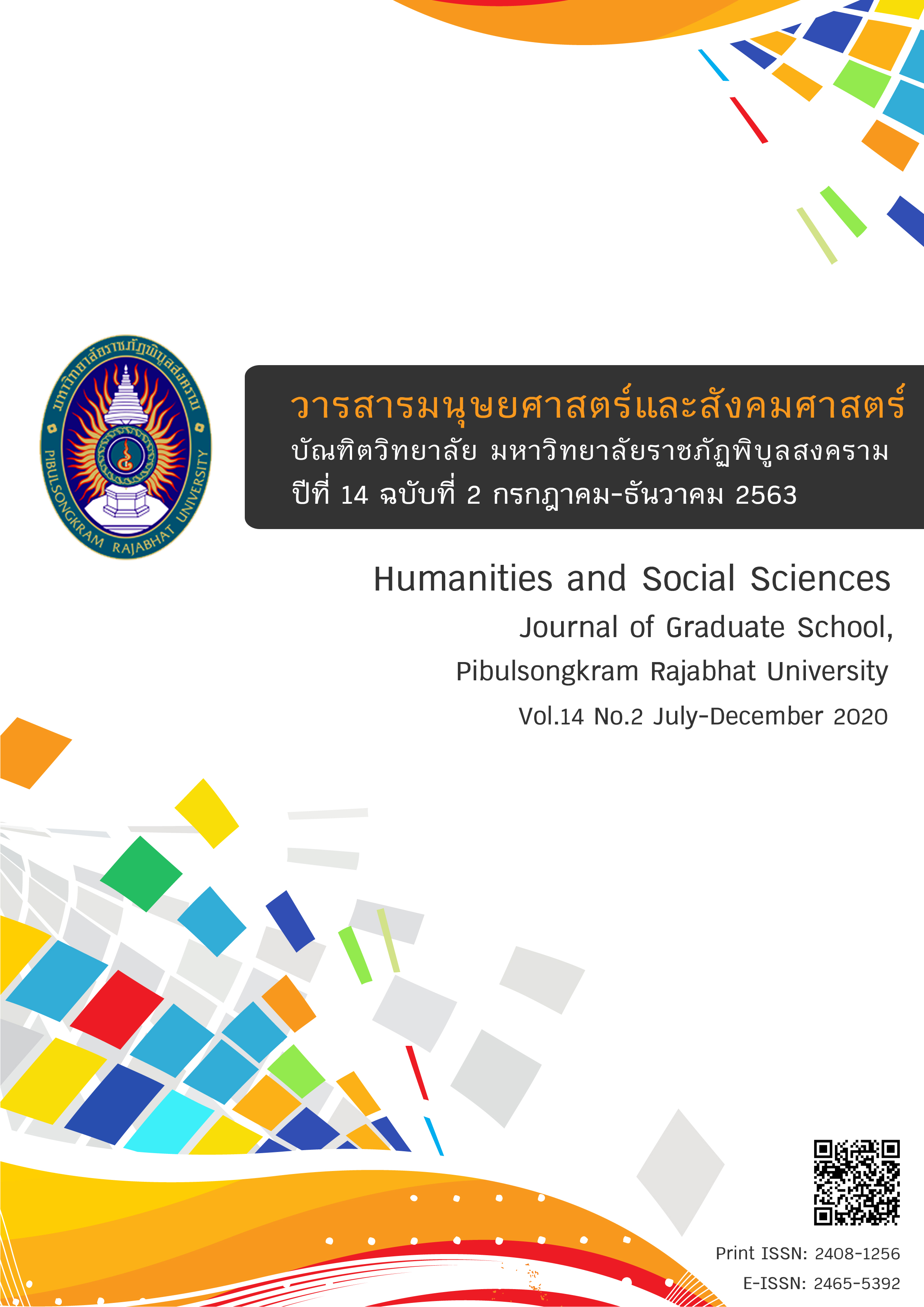Value Chain Concept of Processed Agricultural Products for Development Ability in Marketing Skills of Farmers in Lampang Province to Support Smart Farmer Project
Keywords:
Value chain, Processed agricultural products, Marketing, Smart farmer ProjectAbstract
This research was funded by the National Research Council of Thailand in fiscal year of 2016. The objectives are to study value chain activities of processed agricultural products of Lampang Province’s Farmers, and to analyze value chain activities of processed agricultural products affecting development ability in marketing skills of farmers in Lampang Province to support Smart Farmer Project and to present direction in value chain activities of processed agricultural products affecting development ability in marketing skills of farmers in Lampang Province in order to push forward for support of Smart Farmer Project. Research and development (R&D) includes activities collaborated between state agencies, educational institutions and a group of processed agricultural product farmers, aiming to integrate marketing capability development from beginning, middle and ending trails with the concept of a value chain. Total 26 groups were selected based on the “Exchange Learning Stage”, then selected the potential groups for ability development in marketing skills on the concept of a value chain with research tools of workshop training, focus group and in-depth interview. The research findings suggested that one group of processed agricultural product farmers at Lampang, among 26 selected groups from the beginning, left the project. Therefore, only 25 groups consisted of a group of processed agricultural product housewives, a group of processed agricultural product enterprise and a group once participated in training for Smart Farmer project for Lampang farmers’ development remained. Initially, 9 groups were ready for extending project, but only 6 groups were ready for value chain marketing skill training in processed agricultural product through workshop. The findings from earlier operation suggested that every product group has encountered different product elements. Such problem was used as the database in the analysis to raise product standard that could access market varieties. Later on, the middle operational activities found that once the assigned farmer groups passed the workshop training, all groups had increased their knowledge on value added through building brand, finding alternatives and creative packaging so that the products could enter the distribution channel in the Modern Trade. As for the ending activities, the findings suggested that all farmers group could apply acquired knowledge to design the product, take photo with their own mobile phones and post their own products for sale as well as practice building marketing communication tools and online marketing channel for their own group products.
References
กัณญภัค ตันติพิพัฒน์พงศ์. (2561). แนวทางการส่งเสริมการแปรรูปสินค้าเกษตรเพื่อการส่งออก กรณีศึกษาพืชสับปะรด. ระยอง: สยามอุตสาหกรรมเกษตรอาหาร.
ขวัญฤทัย เทพพิทักษ์. (2559). ห่วงโซ่คุณค่าที่ส่งผลต่อประสิทธิภาพในการประกอบธุรกิจส่งออกผลไม้แปรรูปของผู้ประกอบการไทยในตลาดโลก (การค้นคว้าอิสระบริหารธุรกิจมหาบัณฑิต). มหาวิทยาลัยกรุงเทพ, กรุงเทพ.
ฐิติมา วงศ์อินตา, ปนัดดา กสิกิจวิวัฒน์, ฮุซเซ็น นิยมเดชา, บุณฑรี จันทร์กลับ, โรสลาวาตี โตะแอ. (2558). การวิเคราะห์ห่วงโซ่คุณค่าอาหารฮาลาล. วารสารการขนส่งและโลจิสติกส์, 8(1), 1-11.
วีระเดช นารินทร์ และเพ็ญณี แนรอท. (2560). การสร้างมูลค่าเพิ่มผลิตภัณฑ์ด้านการเกษตรข้าวหอมมะลิทุ่งกุลาร้องไห้ โดยการพัฒนาศักยภาพเครือข่ายเกษตรกร: กรณีศึกษาเครือข่ายเกษตรยั่งยืนตำบลหนองแคน อำเภอปทุมรัตต์ จังหวัดร้อยเอ็ด. วารสารวิทยาลัยบัณฑิตเอเชีย, 7 (1), 1-12.
ศักดิ์นรินทร์ แก่นกล้า. (2559). ห่วงโซ่คุณค่าของผลิตภัณฑ์ข้าวอินทรีย์ อำเภอแม่แตง จังหวัดเชียงใหม่,มหาวิทยาลัยแม่โจ้. ใน รายงานการประชุมวิชาการ (PROCEEDINS) การประชุมสวนสุนันทาวิชาการระดับชาติ ด้าน “การวิจัยเพื่อการพัฒนาอย่างยั่งยืน” ครั้งที่ 5. กรุงเทพฯ: โรงแรมเดอะรอยัล ริเวอร์.
ศิริวรรณ เสรีรัตน์, ศุภร เสรีรัตน์, ปณิศา มีจินดา และคณะ. (2552). การบริหารการตลาดยุคใหม่ (ฉบับปรับปรุง). กรุงเทพฯ: Diamond in Business World.
สำนักนายกรัฐมนตรี. (2559). แนวโน้มอุตสาหกรรมและขนาดตลาดของธุรกิจแปรรูปผลผลิตทางการเกษตร กรมส่งเสริมอุตสาหกรรม. สืบค้น 30 มิถุนายน 2561, จาก http:// bsid.dip.go.th/en/category/quality-control/qs-businessagriculture.
Kotler, P. (2003). Marketing management (11th ed.). New Jersey: Pearson Prentice Hall.
_______. (2011). Marketing management. New Jersey: Pearson Prentice Hall.
Porter, M. E. (1985). Competitive advantage: Creating and sustaining superior performance: with a new introduction. New York: Free Press.
_______. (1998). Competitive Strategy: Techniques for analyzing industries and competitions: with a new introduction. New York: Free Press.
Downloads
Published
How to Cite
Issue
Section
License
Any articles or comments appearing in the Journal of Humanities and Social Sciences, Rajabhat Phibulsongkram University, are the intellectual property of the authors, and do not necessarily reflect the views of the editorial board. Published articles are copyrighted by the Journal of Humanities and Social Sciences, Rajabhat Phibulsongkram University.









